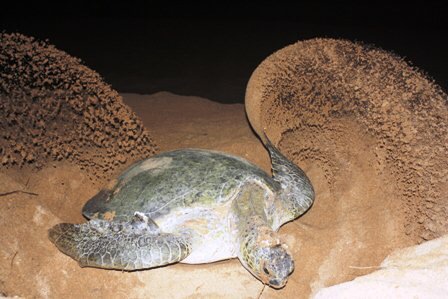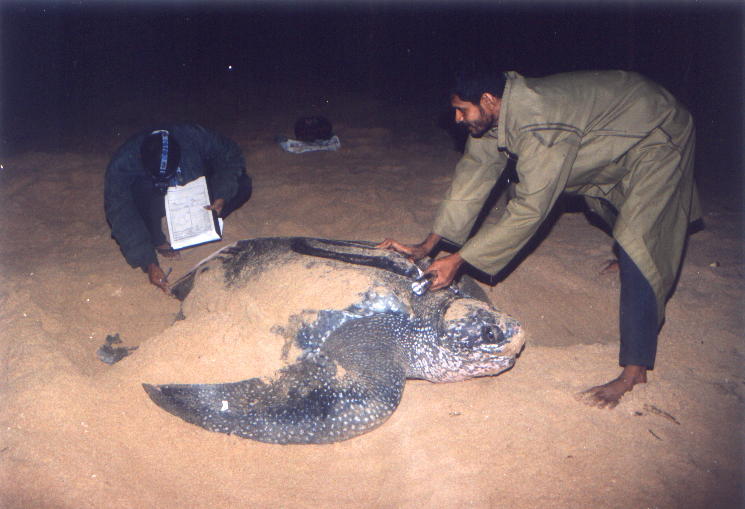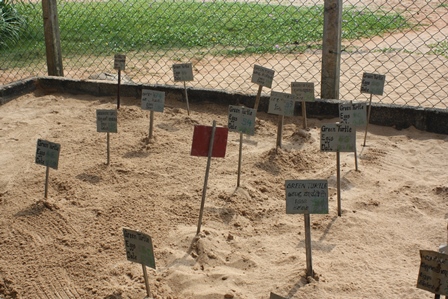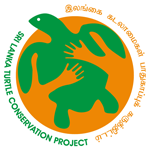
The Turtle Conservation Project “in-situ” nest protection and research programme is designed to employ the egg collectors in a comprehensive community conservation programme with the goal of protecting the nesting marine turtle populations of the both Rekawa and Kosgoda rookeries. With a grant received from UNDP GEF Small Grant programme. The main goals of this initiative were to protect all sea turtle nests laid within the project boundary, to provide direct and indirect alternatives to those who were previously dependent on egg poaching, to train locals in income generation, to promote eco-sensitive nature tourism, and to foster education and awareness.
Rekawa and Kosgoda are two important nesting beaches in Sri Lanka. All five species of sea turtles found in Sri Lankan shores are known to nest in Kosgoda and Rekawa beaches on the south coast of Sri Lanka.
There are two methods of nest protection, ex-situ and in-situ. Ex-situ protection means the conservation of turtles away from its natural habitat. Hatchery owners buy eggs from egg collectors and rebury them in a protected area. Then, these hatchlings are collected and kept in tanks for few days and finally released.
In-situ nest protection entails the idea of protection of nets in their natural habitat, exactly where they were laid and therefore maximizing hatching success. This is the most natural conservation practice allowing the turtles to survive under natural selection.
In Rekawa 21 egg collectors were organized to become nest protectors while 15 persons at Kosgoda. As an alternative they were provided with the opportunity to take up the employment as assistants to the research officers of the research programme and in the in-situ protection of marine turtle nests. The initiative includes a training for the locals as tourist guides and to provide them a government certified tourist guide license as alternative income to egg collecting.
The project received wide recognition from doner agencies such as UNDP GEF-SGP, UNDP Lion’s Share, Colombus Zoo and Aquarium (USA), Sea Turtles Inc. (USA).




